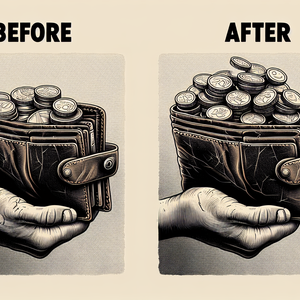The Role of Social Media in Tristan Tate's Wealth Accumulation

For many entrepreneurs, social media extends beyond personal expression; it is an essential business tool. Tristan Tate has mastered this concept, using platforms such as Instagram, Twitter, and TikTok to cultivate a luxurious lifestyle brand that resonates with a targeted audience—those who aspire to success and affluence. Tate’s Instagram, for example, is a carefully curated collection of high-quality images showcasing his lavish lifestyle, including luxury cars, exotic vacations, and exclusive events. This strategic imagery does more than entertain; it serves as a subtle advertisement for his various business ventures. By crafting an aspirational narrative, he captivates potential customers, fostering intrigue and desire around his products and services. His approach to showcasing success is not merely about flaunting wealth but rather about creating a compelling story that draws people in. The visual representation of his life acts as a marketing tool, making it easier for followers to envision themselves in similar situations, thereby boosting engagement and brand loyalty.
Building a Following: Engagement and Influence
Engagement is at the heart of Tristan Tate’s social media strategy. He actively interacts with his audience, responding to comments and sharing posts that encourage discussion. This dynamic interaction creates a sense of community, making followers feel valued and more inclined to support his ventures. Moreover, Tate employs influencer marketing as a strategic avenue for growth. By collaborating with other influential figures in the lifestyle and business sectors, he enhances his visibility and credibility, reaching new audiences that align with his brand. Cross-promotion through these partnerships often results in a significant influx of followers, expanding his network and potential customer base. For example, his collaborations with popular social media figures allow for the sharing of diverse content, which not only highlights his lifestyle but also intertwines with the interests of his partners’ audiences. This method amplifies his reach and solidifies his standing as a credible influencer in the entrepreneurial space.
Monetization Strategies: From Followers to Profits
Ultimately, the goal of Tristan Tate's robust social media presence is to convert his followers into paying customers. He employs various monetization strategies that leverage his engaged audience, including affiliate marketing, online courses, and merchandise sales. Tate has successfully launched digital products aimed at teaching aspiring entrepreneurs the secrets to financial success, effectively positioning himself as a mentor and authority in the field. His personal brand serves as a trusted source, encouraging followers to invest in his offerings. Additionally, his social media platforms function as direct sales channels. By promoting exclusive deals and limited-time offers through posts and stories, he creates urgency that motivates followers to act quickly. This seamless integration of social media and commerce exemplifies the modern entrepreneurial landscape, where digital connectivity facilitates innovative business practices.
Lessons Learned: The Power of Authenticity and Strategy
Tristan Tate's journey provides essential insights for aspiring entrepreneurs regarding the significance of authenticity paired with strategic marketing. While his lifestyle may appear extravagant, it is the authenticity of his narrative that resonates with his audience. By sharing both successes and challenges, he becomes a relatable figure, inspiring followers to aspire to his level of achievement. Moreover, his strategic content creation—balancing personal stories with promotional material—underscores the importance of delivering value to the audience. Successful entrepreneurs must not only attract followers but also engage them meaningfully, ensuring their content remains relevant and beneficial.
Tristan Tate's ascent to wealth underscores the transformative potential of social media in the contemporary entrepreneurial landscape. By skillfully leveraging his online presence, engaging with his audience, and implementing effective monetization strategies, he has built a successful brand that appeals to a broad demographic. As society increasingly embraces digital connectivity, aspiring entrepreneurs can glean valuable lessons from Tate's approach, recognizing social media as an indispensable tool for business development and wealth creation. The interplay between personal branding and strategic marketing will continue to shape the future of entrepreneurship, making it essential for innovators to harness these platforms for their success.
Social Media Marketing Specialist
Digital marketing agencies, e-commerce brands, and startups
Core Responsibilities
Develop and implement social media strategies that align with brand goals and objectives.
Create and curate engaging content across various social media platforms to drive follower engagement.
Analyze social media metrics to assess campaign performance and adjust strategies accordingly.
Required Skills
Proficiency in social media management tools (e.g., Hootsuite, Buffer) and analytics platforms (e.g., Google Analytics).
Strong writing and communication skills with a knack for storytelling.
Experience with visual content creation, including graphic design or video editing.
Influencer Marketing Coordinator
Fashion, beauty, and lifestyle brands, as well as marketing agencies
Core Responsibilities
Identify and build relationships with influencers aligned with the brand’s target audience.
Coordinate influencer campaigns, including content creation, timelines, and contract negotiations.
Monitor and evaluate the effectiveness of influencer partnerships and adjust strategies for future campaigns.
Required Skills
Strong research skills to identify suitable influencer partnerships.
Excellent communication and negotiation skills.
Familiarity with social media trends and influencer marketing metrics.
Content Strategist
Media companies, corporate marketing teams, and non-profit organizations
Core Responsibilities
Develop a comprehensive content strategy that supports brand objectives and audience engagement.
Collaborate with writers, designers, and marketers to produce high-quality content across various channels.
Conduct audience research and competitor analysis to inform content creation.
Required Skills
Strong understanding of SEO best practices and content management systems (CMS).
Ability to analyze content performance metrics to inform future strategies.
Creative thinking with excellent writing and editing skills.
Digital Product Manager
E-learning companies, tech startups, and online retail businesses
Core Responsibilities
Oversee the development and marketing of digital products, such as online courses and e-books.
Collaborate with designers, developers, and marketers to create user-friendly and valuable digital offerings.
Analyze customer feedback and market trends to improve product features and marketing strategies.
Required Skills
Experience with product development processes and project management tools.
Strong analytical skills to assess product performance and user engagement.
Familiarity with e-learning platforms and digital marketing tactics.
Brand Strategist
Advertising agencies, consumer goods companies, and corporate brands
Core Responsibilities
Develop and execute brand strategies that enhance brand visibility and loyalty.
Conduct market research to identify trends, customer preferences, and competitive positioning.
Collaborate with cross-functional teams to ensure brand consistency across all marketing channels.
Required Skills
Strong analytical and strategic thinking skills.
Experience with branding, positioning, and storytelling techniques.
Proficiency in market research methodologies and tools.


